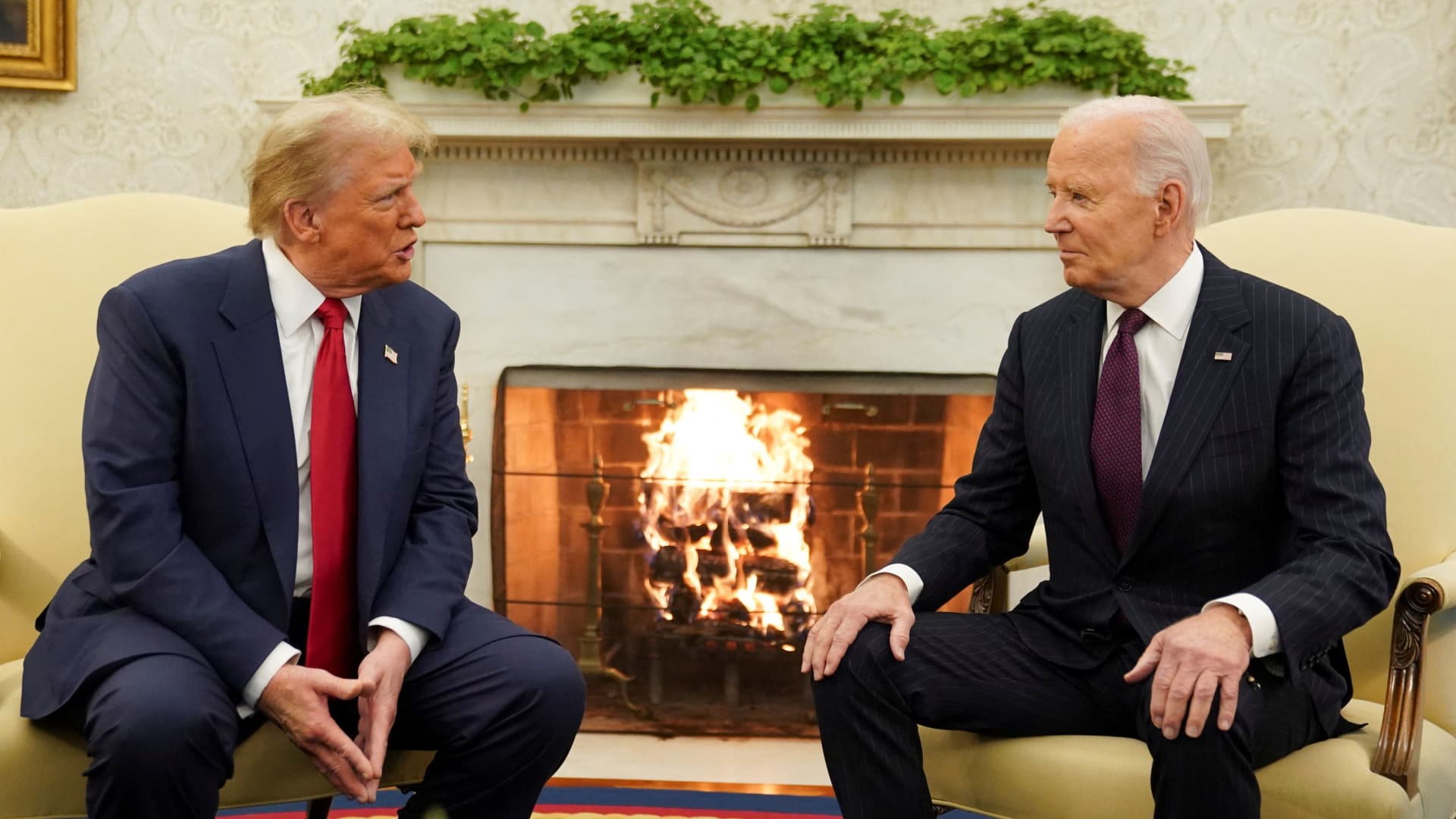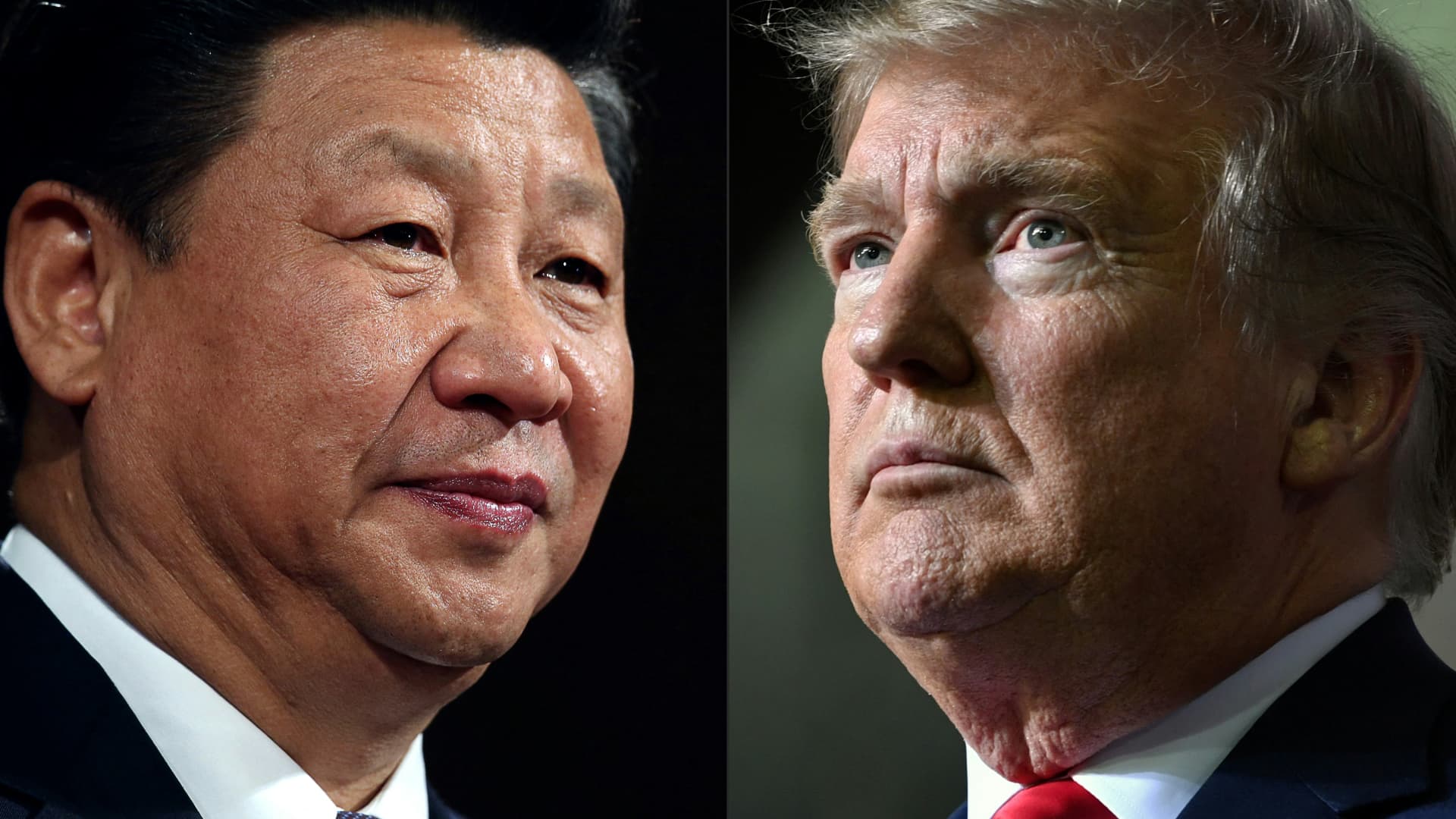The Trump administration on Tuesday said it will keep using strict guidelines adopted by the administration of former President Joe Biden to review proposed corporate mergers.
The decision to retain the guidelines — which have been widely disliked by corporations since their adoption in 2023 — was detailed by Federal Trade Commission Chair Andrew Ferguson and in a memo by Omeed Assefi, the acting head of the Department of Justice‘s antitrust division.
The decision is a victory for the populist, anticorporate wing of the Trump administration, embodied by Vice President JD Vance.
Vance frequently found common ground with Biden’s FTC chair Lina Khan, who made antitrust enforcement a centerpiece of the agency’s mission.
The announcement is also a blow to Wall Street, which had been eagerly anticipating an uptick in corporate consolidation under a loosened framework for evaluating proposed mergers.
Then-President Joe Biden meets with Donald Trump in the Oval Office at the White House in Washington on Nov. 13, 2024.
Kevin Lamarque | Reuters
The existing guidelines detail more than a dozen criteria that the FTC and DOJ use to determine whether to seek to block a merger.
They include mergers not significantly increasing concentration in already highly concentrated markets, not eliminating substantial competition between firms and avoiding vertical mergers that create market structures that foreclose competition.
“Stability is good for the enforcement agencies,” Ferguson said in a statement. “The wholesale rescission and reworking of guidelines is time-consuming and expensive.”
“We should undertake this process sparingly,” he said. “We have limited resources to patrol the beat and constant turnover undermines agency credibility.”
In a social media post, Ferguson said the 2023 guidelines build on previous guidelines and many decades of case law.
“That stability is important for enforcement agencies and the business community.”
“The FTC has limited resources,” Ferguson wrote. “Rewriting guidelines after every election would be expensive and time-consuming. It would also be destabilizing. Enforcement agencies should avoid a wholesale change in guidelines with every new administration,” he wrote.
“Otherwise, the guidelines would become worthless to businesses and the courts.”











